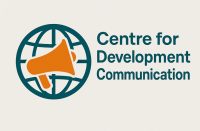In my 15 years of community engagement, my experience in Ushafa community (Bwari Area Council, FCT-Abuja) stands out as one of the most challenging and eye-opening. It remains a lasting lesson — and a warning signal.
In March 2025, I led a team to Ushafa for a participatory communication session on climate change mitigation and adaptation measures among rural farmers.
Two weeks before the event, I partnered with Mr. Hassan Zakari, a local influencer and farmer, to help identify 20 participants. I also requested that he identify a respected community leader with deep knowledge of indigenous climate adaptation practices to lead the community dialogue. I assured him that our team would support from behind, allowing the community to own the process.
But this is where things went wrong.
Unknown to us, the community member selected to lead the dialogue misinformed the farmers, telling them we were coming to distribute loans and provide farm inputs. As a result, over 150 farmers showed up for an event that was only meant for 20 carefully selected participants.
It quickly became one of the most difficult moments of my career.
When I reminded Mr. Hassan of our earlier agreement, he explained that it was the community lead—his second—who spread the false information, possibly to raise his own profile.
Tensions rose rapidly. When we tried to explain that the meeting was not for distributing loans or inputs, anger and frustration erupted. Some farmers accused us of bias, and a few even attempted to physically confront us.
Realizing the miscommunication stemmed from internal dynamics within the community, I immediately asked Mr. Hassan to help identify six influential community members.
In a closed-door meeting with them, I sincerely explained the real objective: to understand and document indigenous climate change adaptation practices and co-create effective educational interventions to support climate resilience.
Once the truth was clarified, one of the leaders addressed the larger group. Like magic, calm returned. The farmers understood the purpose of the dialogue, appreciated the honesty, and dispersed peacefully.
The Big Lesson?
When community mobilizers misrepresent project intentions—whether for personal gain or out of ignorance—it puts lives and trust at risk. Unfortunately, some NGOs and researchers have developed the habit of deceiving communities to attract participation. But that short-term gain leads to long-term damage.
My personal principle is clear: Everyone, both direct and indirect beneficiaries, deserves the truth.
That’s the only way to co-design programs that are truly accepted, effective, and sustainable.
We must never lie to gain community support. When we lie, we don’t just lose trust—we risk lives.
We are building community constituencies, not exploiting communities for personal branding.
